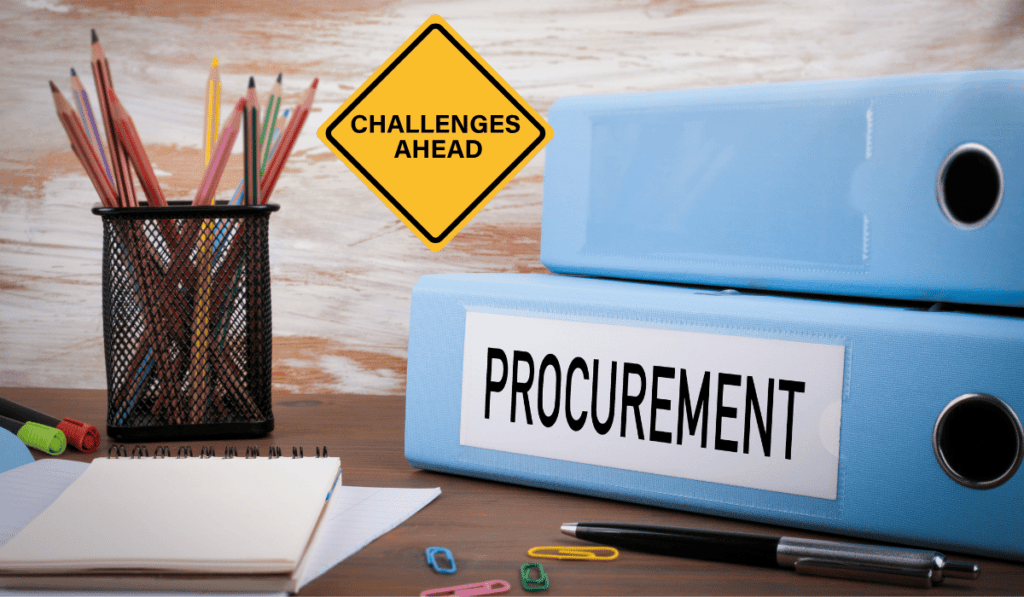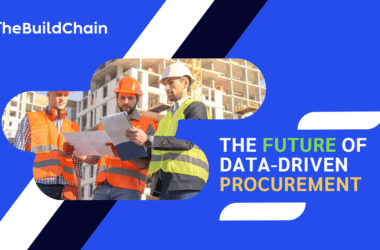In construction, efficient procurement is fundamental to project success. Traditionally, this process has been labour intensive, time consuming, and sometimes prone to errors.
However, the digital era has brought about a significant transformation in how construction materials are sourced, acquired, and managed.
We’re exploring the evolution of supply chain management in the construction industry, exploring the digital tools that are revolutionising materials procurement.
Traditional Challenges in Construction Materials Procurement

Historically, materials procurement has been plagued by several challenges, including:
- Fragmented Supply Chains: Construction projects often involve numerous suppliers, leading to fragmented supply chains that are difficult to manage efficiently
- Manual Processes: Paper-based documentation, phone calls, and emails have been the primary means of communication between stakeholders, resulting in delays and miscommunications
- Limited Visibility: Lack of real-time visibility into inventory levels, order status, and delivery schedules has hindered effective decision making
- Risk of Errors: Manual data entry and reliance on spreadsheets have left room for human error, leading to inaccuracies in orders and invoices
The Digital Transformation of Construction Materials Procurement

The advent of digital technologies has paved the way for a paradigm shift in construction materials procurement. Some of the key digital tools driving this transformation include:
1. Digital Procurement Platforms
Digital procurement platforms streamline the procurement process by providing a centralised digital dashboard where buyers can place orders, compare prices, and track all procurement activity. These platforms offer greater transparency, efficiency, and cost savings compared to traditional procurement methods.
2. Supply Chain Management Software
Supply chain management (SCM) software enables construction companies to optimise their supply chains by automating processes such as demand forecasting, inventory management, and supplier collaboration. By leveraging advanced analytics and AI algorithms, SCM software helps organisations make data-driven decisions and mitigate supply chain risks.
3. RFID and IoT Sensors
Radio-frequency identification (RFID) tags and Internet of Things (IoT) sensors provide real-time visibility into the location and condition of construction materials throughout the supply chain. By tracking assets from the warehouse to the job site, RFID and IoT technologies prevent theft, reduce inventory shrinkage, and improve asset utilisation.
4. Blockchain Technology
Blockchain technology offers a secure and transparent way to track the provenance of construction materials from source to destination. By recording transactions in a tamper-proof distributed ledger, blockchain enables stakeholders to verify the authenticity and quality of materials, thereby reducing the risk of counterfeit products and ensuring compliance with regulatory standards.
The Benefits of Digital Transformation in Construction Materials Procurement
The adoption of digital tools in construction materials procurement offers several benefits, including:
- Improved Efficiency: Automation of repetitive tasks and streamlined workflows reduce the time and effort required to procure materials, enabling projects to be completed faster and within budget
- Enhanced Visibility: Real-time tracking and monitoring capabilities provide stakeholders with greater visibility into the status of orders, inventory levels, and supply chain performance
- Cost Savings: Digital procurement solutions help minimise maverick spending, negotiate better terms with suppliers, and optimise inventory levels, resulting in cost savings for construction companies
- Reduced Risk: Digital tools mitigate the risk of errors, delays, and supply chain disruptions, thereby enhancing project resilience and mitigating financial issues
Case Studies: Contractors Transform Their Materials Procurement with The Build Chain
Many construction companies are already embracing digital transformation in materials procurement and seeing impressive results.
UK-based Contractors Rasico Construction and THB are using digital materials procurement platform The Build Chain to transform the way they source materials.
Rasico Construction has used the platform to save time and increase efficiency, whilst THB is using The Build Chain to streamline their supply chain and improve project delivery.
Digital transformation is revolutionising construction materials procurement, empowering companies to optimise their supply chains, improve efficiency, and mitigate risks. By embracing digital procurement platforms, SCM software, and blockchain technology, construction companies can gain a competitive edge in today’s fast-paced industry.
As the pace of technological innovation accelerates, it is imperative for organisations to embrace digital tools and strategies to stay ahead of the curve and drive sustainable growth.




